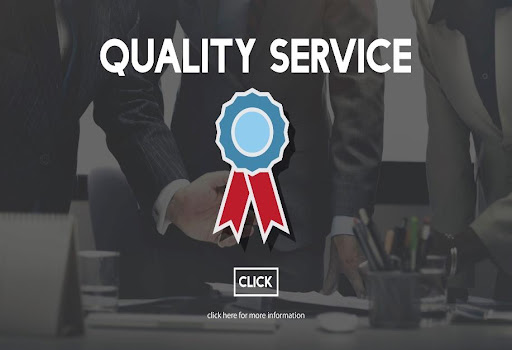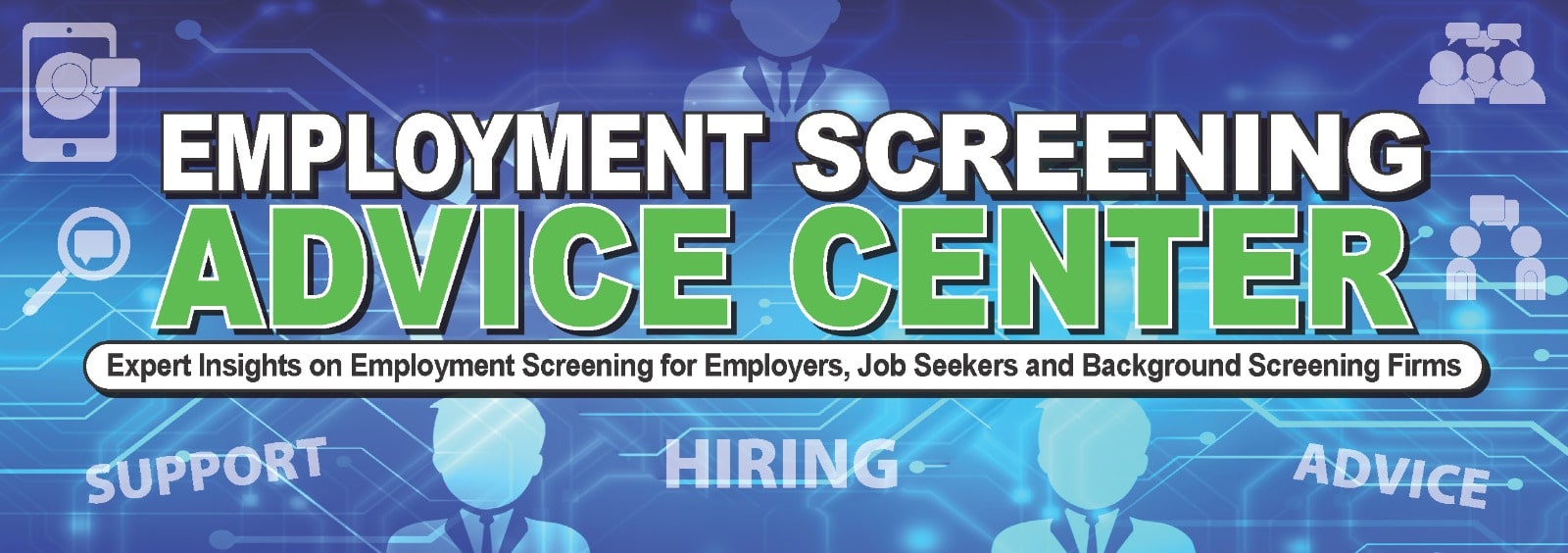
By Derek Hinton, President, CRAzoom
The quality of the goods or services you offer to your clients is likely one of your top concerns. And it’s not just the particular widget or service you provide. Many things go into your clients’ quality experience and perception. Your firm’s internal employee screening, training, customer service, after-the-sale policies and experience all contribute to a clients’ quality experience and perception.
It is important to understand that quality does not necessarily mean the most expensive, and it may not even mean the best. For example, if an automaker made a titanium bumper guaranteed to last 100 years without dent or scratch would you pay an additional $20,000 for it? It’s demonstrably higher quality. For the goods and services, you offer, would your clients pay that kind of premium? Probably not unless that is singularly important to them.
Your employment screening firm provides you with information. To ensure quality, they must recruit, screen, hire employees who have integrity and train them to fully understand and perform their work to the level of standards they have implemented. They must be compliant with legal requirements, provide ongoing education to their clients, and have written policies and procedures that institutionalize knowledge rather than have it reside in a few key workers’ heads. This way if a worker leaves the company that insure the knowledge of standards and how to perform the work stays in the firm. They must not only have the right technology but also must make sure it is easy to use. Given the highly personal and confidential nature of the information they are providing it is essential that they provide the highest level of security. They must vet and monitor their vendors and subcontractors to ensure they also meet their standards, maintain high security and provide maximum protection of personal information. Maintaining high standards of delivery, applying the right and easy-to-use technology and maintaining high-level information security protocols may make their delivery a bit slower–but will deliver a higher sustained level of accuracy. Remember “Long after a slower delivery date is forgotten, the memory and pain caused by a faster delivery of inaccurate information will live on.”
PBSA Accreditation Directly Addresses Quality
How can a company evaluate an employment screening firm’s quality before using them? One objective measure is to check their PBSA Accreditation status. The PBSA Accreditation program addresses each of the items above:
- information security,
- legal and compliance,
- client education,
- court, and verification service standards, and
- general business practices including working screening, training, and education.
An accredited employment screening firm must have detailed written policies and procedures covering all these areas and demonstrate through an onsite audit full compliance by an independent auditing firm.
This is all extremely valuable, but how does the accreditation standard directly address quality? How can you know that the information you are currently receiving is accurate? While an applicant may certainly let you know if your employment screening firm erroneously reported a criminal offense, they may be less likely to inform you if their criminal history is missed. Either way, receiving wrong information is not receiving the quality you need.
According to the Consumer Finance Protection Bureau which enforces the Fair Credit Report Act (FCRA) the critical quality measurement for an employment screening firm is to provide “maximum possible accuracy.” It’s Federal Law and failure to abide by this standard affects the screening firm as well as you.
The PBSA Standard requires employment screening firms who wish to be accredited to specifically address quality in the information they provide in three different clauses (employment screening firms are formally known as “Consumer Reporting Agencies” or “CRAs” as used below) :
- CRA must have and follow procedures to audit and analyze product quality. Identified quality lapses, including those identified during consumer disputes, must be quantified and analyzed, including root cause analysis, and appropriate corrective actions must be implemented.
- CRA must have and follow procedures to reasonably ensure the accuracy and quality of all work product. CRA must have and follow accuracy and quality procedures specific to work product containing public records likely to have an adverse effect on consumer. The CRA must take into account the particular nature of public records research and reporting when designing and implementing the specific procedures related to accuracy, completeness, and currency of public records research and reporting likely to have an adverse effect on consumers. CRA must designate an individual(s) or position(s) within the organization responsible for quality.
- If CRA uses automated reporting systems, CRA must have and follow reasonable procedures to ensure results as reported on consumer report accurately reflect source information received into the automated reporting system.
So, a percentage of every information gathering and reporting service an accredited firm performs for you is double-checked. That doesn’t mean looking at what was provided twice, but going to the source using a different employee or vendor and comparing the results with what was received the first time.
For example, they will go to the county using a different supplier or court clerk and pay for the record again. When they receive that record, they compare that with what was originally obtained/reported. If there is any difference, job one is to determine why and fix the issue if there is one and inform the client. The entire investigation, and if need be, the remedy must be documented.
For reference checks, a certain percentage is done again, using a different employee or source if available. If one reference says the employee was terminated and the other says the employee quit the job, there’s an issue and the same protocol is followed as with a criminal record.
For accredited firms, discrepancies happen but are rare. The required due diligence on employees and partners before using them helps, but as former President Reagan is credited with saying, “Trust, but Verify.”
Other services differ some but still have quality protocols. For example, you may order driving records. An accredited firm may not contact the county sheriff to verify the speeding ticket. But an accredited firm will take a percentage of driving records you ordered and ensure that the identifying information you provided was what was sent to the Department of Motor Vehicles and that the information they provided pertained to whom was about and further, that was the information provided back to you. This is a systems check. Federal, State, and Local IT systems have been known to develop bugs. An accredited firm monitors that.
As you might suspect, re-ordering information for which there is no paying client is expensive. But failing to uncover a systemic (or random) issue that bars “maximum possible accuracy” can be more expensive for all parties concerned.
Conclusion
The quality of your current employment screening partner is difficult to measure. It is almost impossible to evaluate the quality of a company you have not used. It is most certainly not a function of the size of the employment screening firm. PBSA accreditation can (and has) been achieved by companies with 3 employees and thousands of employees.
The most important and apparent indicator of quality may be the employment screening firm’s PBSA Accreditation status. This is not to say an accreditated firm will not goof, or that an unaccredited firm cannot provide quality service. But with objective, empirical benchmarks of quality hard to ascertain, the PBSA accreditation standard is an excellent pre-qualifier to check when choosing an employment screening partner.
ABOUT THE AUTHOR
 Derek Hinton is President of CRAzoom, a company used by the majority of CRAs to achieve and maintain PBSA Accreditation. In addition, Derek consults as a fractional Compliance Officer for CRAs, has created “plug and play” packages for CRAs being audited by their vendors, and is the owner and creator of CrimApollo, a criminal record assessment tool for employers and CRAs. Derek is also the managing partner of NameGrades, a program that assesses the commonality of names in the United States.
Derek Hinton is President of CRAzoom, a company used by the majority of CRAs to achieve and maintain PBSA Accreditation. In addition, Derek consults as a fractional Compliance Officer for CRAs, has created “plug and play” packages for CRAs being audited by their vendors, and is the owner and creator of CrimApollo, a criminal record assessment tool for employers and CRAs. Derek is also the managing partner of NameGrades, a program that assesses the commonality of names in the United States.
Derek began his career working for a CRA in 1984 and held positions in communications, product and market development, marketing, lobbying, legal, and compliance. From 2002 to 2008, Derek was the author of three editions of The Criminal Records Manual, described by a reviewer as “the definitive book on criminal records…for anyone involved in background screening, human resources, security or employment law.” Derek also acts as an expert witness in matters of employment screening.


